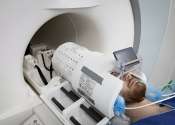Three types of cells help the brain tell day from night
Bright light at night interrupts the body's normal day-night cycles, called circadian rhythms, and can trigger insomnia. In fact, circadian rhythms play a major role in health. Disrupted day-night cycles have even been linked ...
Dec 5, 2019
0
139









